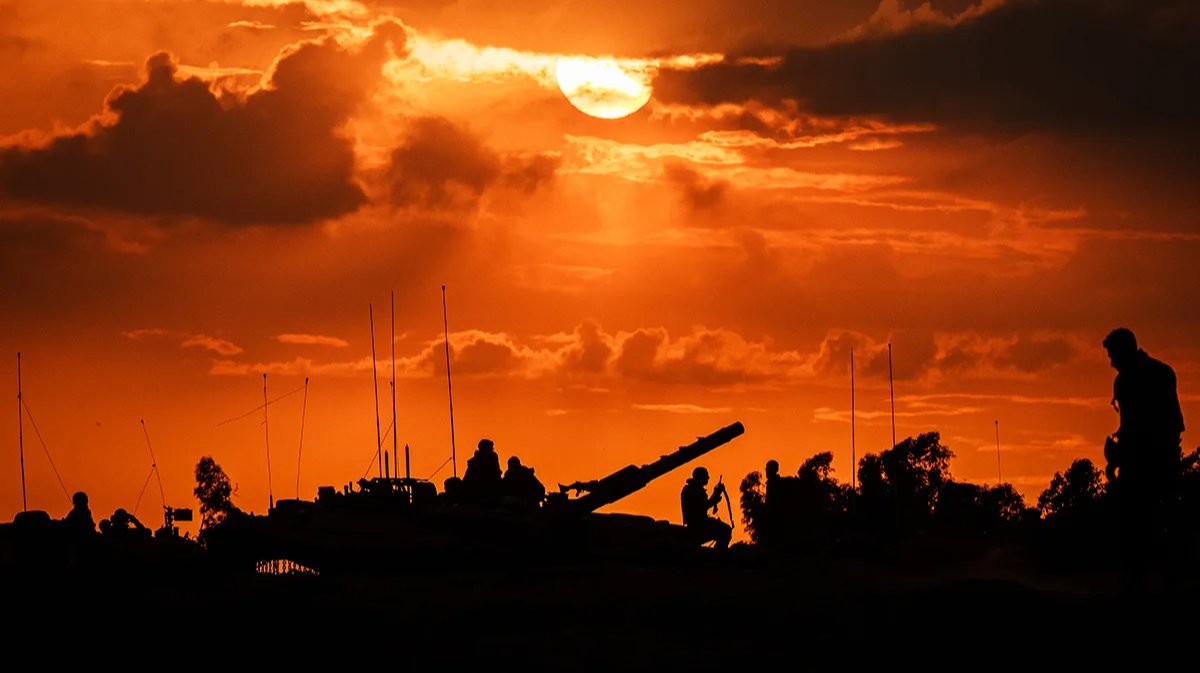The latest escalation in the Israeli-Palestinian conflict has provoked a unanimous response from the Russian religious community, with both Orthodox and Muslim leaders calling for a peaceful resolution to the crisis, despite their ongoing support for Russia’s pummelling of Ukraine.
The Muslim community reacts
The first Russian religious leader to issue a statement, just a few hours after the Hamas attack on Israel, was the chairman of Russia’s Spiritual Administration of Muslims, mufti Rawil Gaynetdin.
According to him, Russia had “been making decades-long efforts to peacefully resolve the deadly conflict within the borders of the historical land of Palestine”.
The mufti’s calls for peace are in stark contrast to his position on the war in Ukraine. Gaynetdin supported Putin’s mobilisation order in September 2022 by saying that Russia’s cause was “right and just”.
Now, Gaynetdin is calling on both sides in the fighting to “ensure safety, prevent civilian deaths, and move towards full-fledged dialogue”.
“We’re praying for the rapid end to the bloodshed and for peace and prosperity everywhere on Earth!” Gaynetdin said.
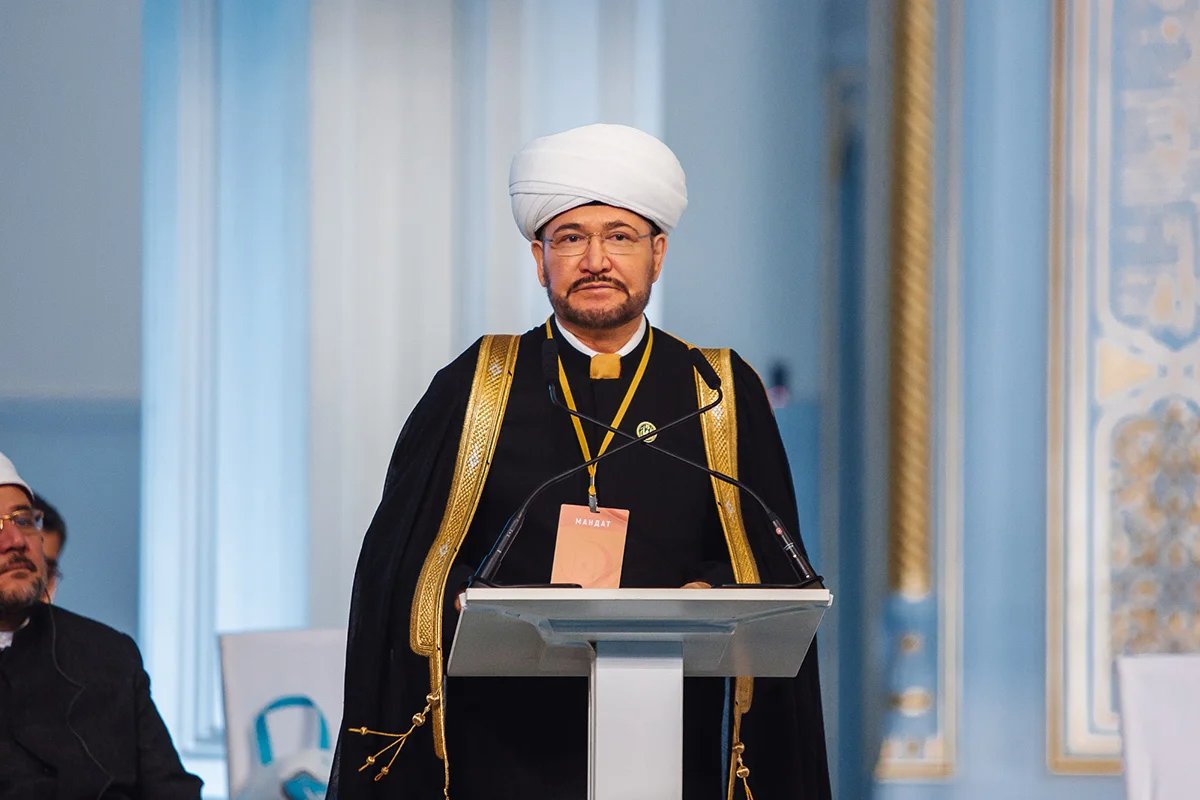
The chairman of Russia’s Spiritual Administration of Muslims, mufti Rawil Gaynetdin. Photo: dumrf.ru
The Spiritual Administration, which Gaynetdin heads, issued its own official statement addressed to the Israeli government on 12 October in which it called for “the end to the bloodshed, pointless civilian casualties, indiscriminate use of force, and collective punishment of civilians”. The Spiritual Administration previously issued a statement expressing “sincere support” for Russian President Vladimir Putin’s decision to invade Ukraine, calling for the “eradication of the threat of Nazism” in Donbas.
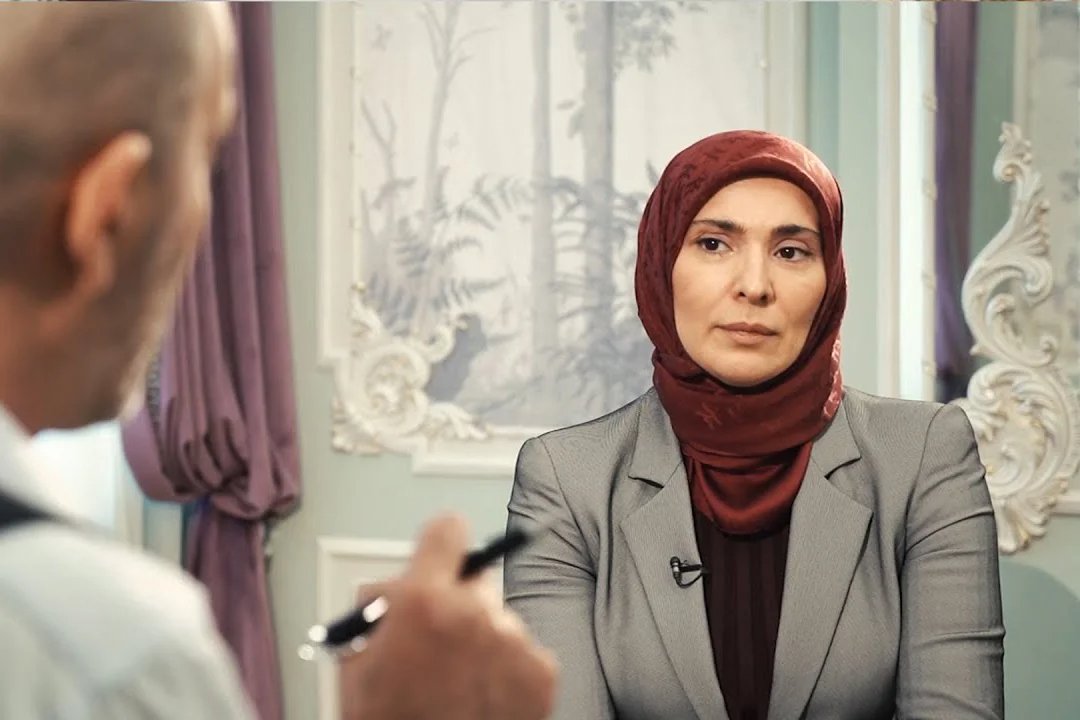
Aina Gamzatova, the advisor to Dagestan’s mufti. Photo: nnt_tv / Youtube
Aina Gamzatova, an advisor to the mufti of Dagestan, called for people to reflect on “bombs that will drop on the heads of your children” and asked people to “pray for peace” in Palestine.
In an effort to sustain her selective pacifist rhetoric, Gamzatova quoted Russian Foreign Minister Sergey Lavrov’s opening remarks ahead of his talks with Arab League Secretary-General Ahmed Aboul Gheit on 9 October, when he called for an urgent ceasefire to “resolve the problems facing civilians, who are the victims in the current situation”.
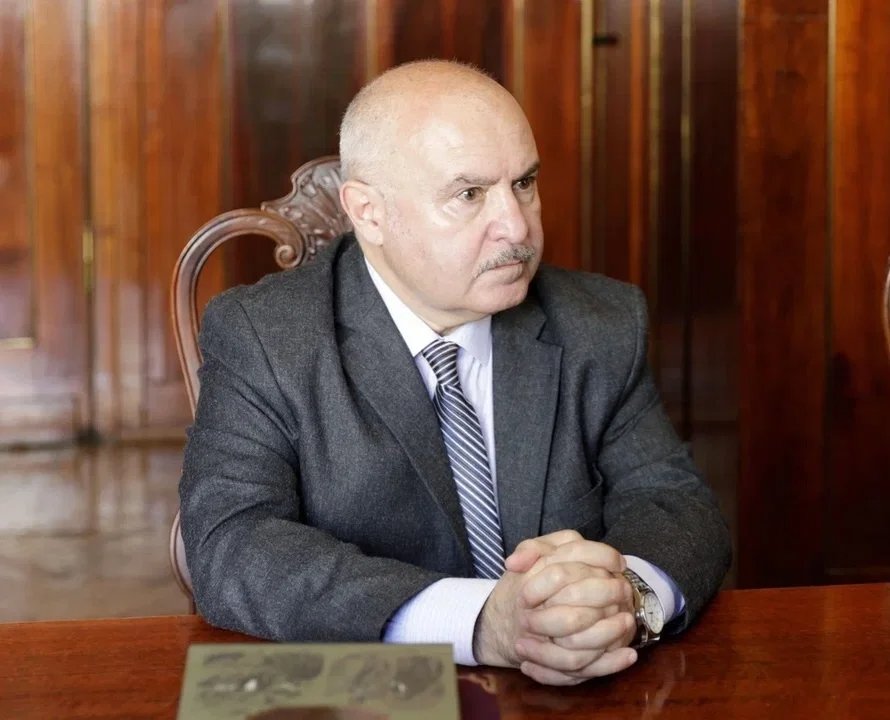
Safa Kerimov, the editor-in-chief of the Islam in CIS news website. Photo: VKontakte
The editor-in-chief of the Islam in Commonwealth of Independent States (CIS) news website, Safa Kerimov, is indignant: “Apparently, even in the 21st century there are no other arguments bar guns to be made”, while war is “the only way to solve conflicts” once again. We shall note that this epiphany didn’t occur to the influential Muslim publicist on 24 February 2022.
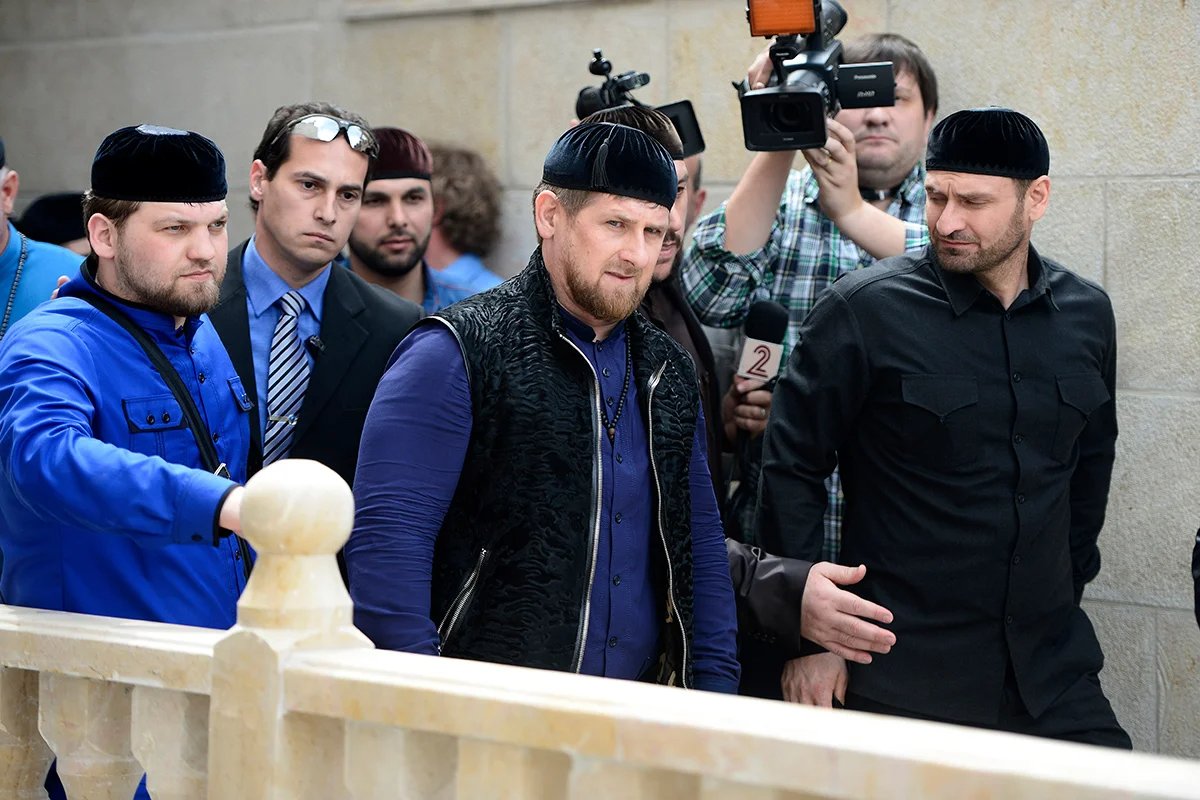
Ramzan Kadyrov participates in the opening ceremony for a mosque in Israel’s Abu Ghosh, where many Chechens reside. Photo: Salih Zeki Fazlioglu / Anadolu Agency / Getty Images
The leader of Chechnya, Ramzan Kadyrov, often speaks out on international issues that are far beyond his jurisdiction, and he tends to do so in a much sharper tone than Putin. His straightforwardness makes Kadyrov’s position sound more authentic to the Islamic ummah than the carefully-worded statements offered by the official representatives of Russia’s Muslim population.
On the evening of 9 October, Kadyrov took to Telegram to confirm his total support for the Palestinian people and stated that, unlike the “special military operation”, the Palestine-Israel conflict had the potential to turn into a global war. He even offered Chechen military units for use “as a peacekeeping force” to restore order in the region.
The Orthodox community reacts
On 8 October, a number of Russian channels reported that the “Israeli military” had desecrated the Saint Porphyrius Orthodox Church in Gaza built in the Byzantine period, striking it in a missile attack. The church was forced to deny the claims.
Unlike Russia’s Muslim leaders, Patriarch Kirill of Moscow admits that there’s a “religious dimension” to the conflict in Palestine. He also used the occasion to underline that his church “unceasingly calls for a just peace and for mutual understanding between peoples”.
Since the Russian invasion of Ukraine in February last year, however, Patriarch Kirill hasn’t once expressed his sorrow at the destruction of monasteries and churches in Ukraine, at the loss of civilian life, or at the victims of catastrophes such as the sabotage of the Nova Kakhovka dam, despite his frequent mention of the Russian Orthodox Church’s “multi-million congregation” in Ukraine.
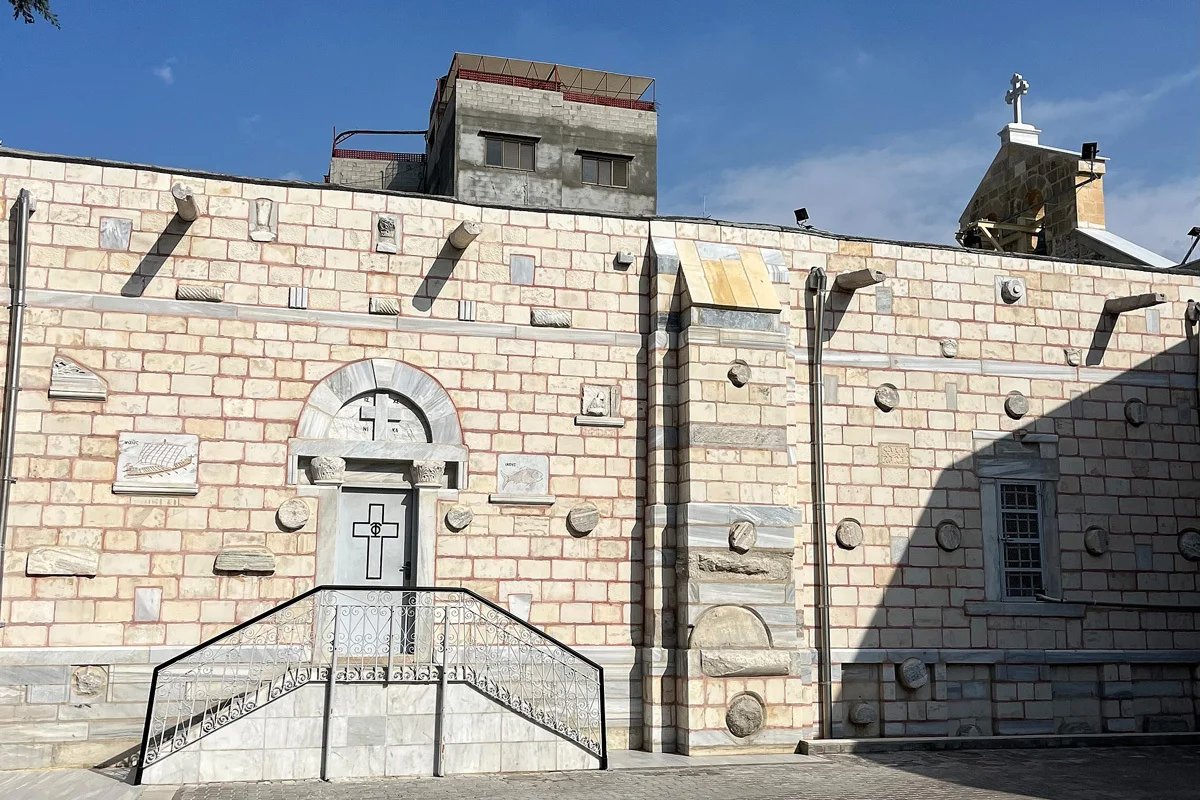
A church in Gaza. Photo: Dan Palraz / Wikimedia (CC BY-SA 4.0 DEED)
Meanwhile, the “Patriarch’s condolences” section on the Russian Orthodox Church’s website includes countless expressions of sympathy to victims of different tragedies in dozens of countries, from Morocco to China.
The two Russian Orthodox Church missions in Israel have so far kept quiet. Under the present circumstances, Israel is unlikely to interpret that silence as a source of comfort.
Sergey Stepashin, who briefly served as Russia’s prime minister in 1999 and who nowadays heads the Imperial Orthodox Palestine Society, has so far been the only public figure to speak on behalf of the “Russian presence in the Holy Land”. According to Stepashin, the war in the Middle East has a “domestic” dimension for Russia and for Putin himself due to US involvement in the conflict and the fact that the US didn’t “care about people being killed in hostilities”.
Antagonising the US government has become an important part of late-stage Putinism ideology, while religious communities have ceased to have any real voice in Russian society and have instead been replaced by pro-regime opportunists content never to the rock the boat in exchange for their religion continuing to enjoy its elevated status in the hierarchy of state. It seems unlikely that these so-called religious leaders will be able to justify their actions once their patron is no longer in power, however.
Join us in rebuilding Novaya Gazeta Europe
The Russian government has banned independent media. We were forced to leave our country in order to keep doing our job, telling our readers about what is going on Russia, Ukraine and Europe.
We will continue fighting against warfare and dictatorship. We believe that freedom of speech is the most efficient antidote against tyranny. Support us financially to help us fight for peace and freedom.
By clicking the Support button, you agree to the processing of your personal data.
To cancel a regular donation, please write to [email protected]
